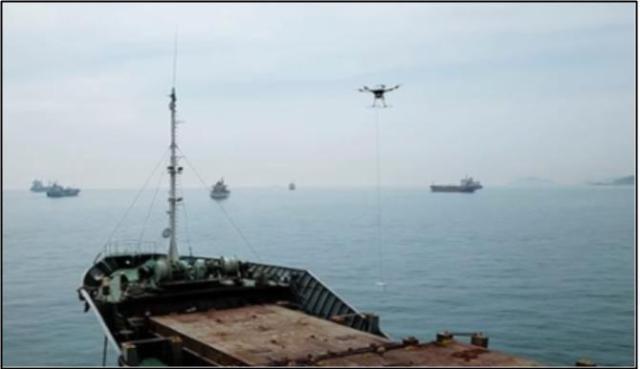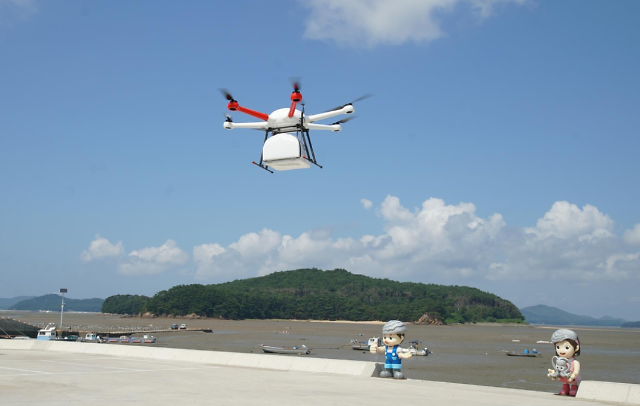
[Courtesy of KAIST]
SEOUL -- The Korea Advanced Institute of Science & Technology (KAIST) was selected by the South Korean government to establish a research and development center for high-tech military drones. About 49 billion won ($37.5 million) will be invested in the construction and operation of the R&D center.
The prominent state-operated research institute said in a statement on March 13 that KAIST was selected by the Korea Research Institute for Defense Technology Planning and Advancement (KRIT) to inject 49 billion won to establish a roadmap for a drone-specialized zone, drone technology R&D center, drone-testing facility, and support programs for new entrepreneurs who wish to enter the drone industry by 2026.
KAIST said that the institute will create an environment for the research and development of drone technologies in the central city of Daejeon where various major scientific research complexes are located. Through the government-accelerated program, nano-sized drones and shape-changing transformable drones will be developed.
Earlier in March, the South Korean government announced that the defense ministry will set up a drone operations command headquarters during the second half of 2023. The defense ministry's announcement was made about three months after the airspace of Seoul and its northern satellite cities were breached by a handful of North Korean drones on December 26, 2022.
The Joint Chief of Staff said one of the drones flew across the northern region of Seoul for about an hour. The defense ministry admitted on January 5 that Seoul's airspace was breached by North Korean drones.
When North Korean drones were detected, the South Korean Air Force scrambled fighter jets including F-15K and KA-1 fighter jets. The Army also deployed attack helicopters such as AH-64, also known by its nickname "Apache," and AH-1 "Cobra" in an effort to intercept the unmanned aerial vehicles (UAVs), but South Korean warbirds could not shoot down the North Korean drones because they could cause collateral damage when they crash into populated areas.
According to the defense ministry on March 8, the drone operations command headquarters, scheduled to be established in the latter half of 2023, will preferentially focus on the distribution of South Korea's operational airspace for UAVs. Currently, the airspace is allocated for fixed-wing planes, helicopters, artillery forces, and other aerial vehicles.
The new drone command will benchmark other countries which manage military drones. Turkey is one of the few countries with strong drone operational capabilities. The country developed and operates Bayraktar TB2, a medium-altitude long-endurance unmanned combat aerial vehicle that is remotely controlled to provide air-to-ground attack missile support for ground troops. TB2 can also be armed with laser-guided bombs and missiles.




